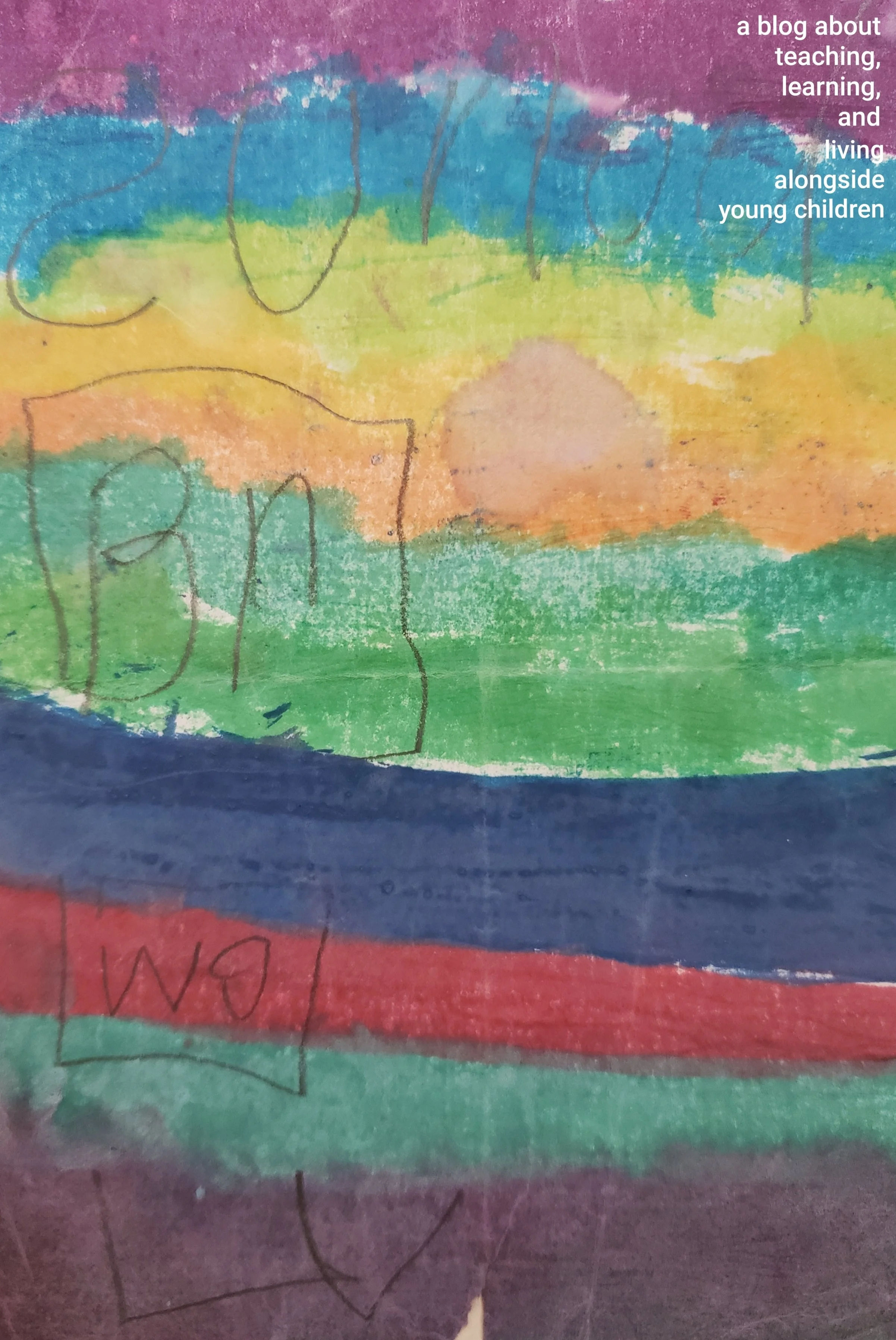The Teacher's Job Is To Learn
/I chose to work in the field of Early Childhood Education after working for years with in- and at-risk high school students. I was an interventionist coming into these young adults’ lives at a point when it often felt too late - too late to tell them I heard them; they’d already been told to be silent by teachers and probation officers alike. It was too late to tell them I believed them when they said school was hard; they’d already been told they were too stupid to listen to teachers speak at them, often in a language that was not their own. Too late to tell them that their lives had meaning beyond the money they did not have; the culture around us had already told them that the shoes on their feet said more about them than the stories in their hearts. Plus, I had all these same problems. I, too, was a product of this system, except I am white and had the option to fake it until I made it through school.
So when I moved to Los Angeles, I shifted my focus to where I thought maybe I could do better sooner. Many things shifted in my own life, and I didn’t know where I would end up or how I might evolve in my role as an educator.
My personal disequilibrium prepared me to think in new ways. What I learned was this: the mistake I’d made was thinking it was my job to tell children about themselves. My job is to listen. My job is to expand. My job is to provoke. My job is to move through life with the children, knowing they are radically capable, to be there for them with a hint here, a nudge there, based on what I, too, know of this pre-constructed world. But if I tell them How Things Are, there is a risk that they will never change them, and isn’t change what we really need?
I see my role as a co-constructor of meaning as the single most important part of my work, so much so that I sometimes question the term “educator” itself. There are moments when I have been so equally invested, curious, and in it with the children’s thinking that I wonder a little, what is the difference between me and anyone else who might actually just listen to children and care about what they think and feel. What makes me a capital-T Teacher in an egalitarian classroom? It is this: I use my skills, knowledge, and experience as an adult to frame our experiences, to hone in on essential questions, and design environments and experiences that support children through cognitive and emotional disequilibrium and into a better understanding of themselves and others. My role is never to supply answers and predestine the intellectual maps of the children - it is to help them create a useful, malleable schema that will serve their learning for a lifetime. (My role is also to make sure they wash their hands after they use the restroom, but I digress.)
My goal for classroom life is to percolate progressions — socially, developmentally, intellectually, and sociologically. It is my objective when I lay out new materials, arrange and rearrange furniture, or ask questions that the children (or even a single child) will feel a little buzz of excitement in their stomachs for the chance to try something, to wonder, to feel. I hope for the children to sink deep into the experience of thinking, something that was my own saving grace as a child in a toxic environment and is so often denied to children in traditional school - the window-gazing beauty of our mind’s eye. My dream for every child is to crystallize that feeling of possibility and take it everywhere.
And then my job is to simply talk about it, to be an advocate for the experiences we, as a culture, don’t traditionally listen to - those of children. Talking together with parents and other educators has been a career-changing practice. I was raised and trained in the traditional mode of teacher stealth - close your door, do your magic, pretend to know everything, and if it’s hard, keep it to yourself - or else. But, the experience of discussing and making connections about development, parenting, teaching, and learning opens doors for ever-increasing innovation and, to repeat the mantra, desperately needed change. Talking together about our experiences as teachers, learners, and humans is how we learn who we are and what we can become. The same is true for teachers parents, and children. To quote Stephen Hawking, “For millions of years, [human]kind lived just like the animals. Then something happened which unleashed the power of our imagination. We learned to talk and we learned to listen. Speech has allowed the communication of ideas, enabling human beings to work together to build the impossible. [Human]kind's greatest achievements have come about by talking, and its greatest failures by not talking. It doesn't have to be like this. Our greatest hopes could become reality in the future. With the technology at our disposal, the possibilities are unbounded. All we need to do is make sure we keep talking.”


